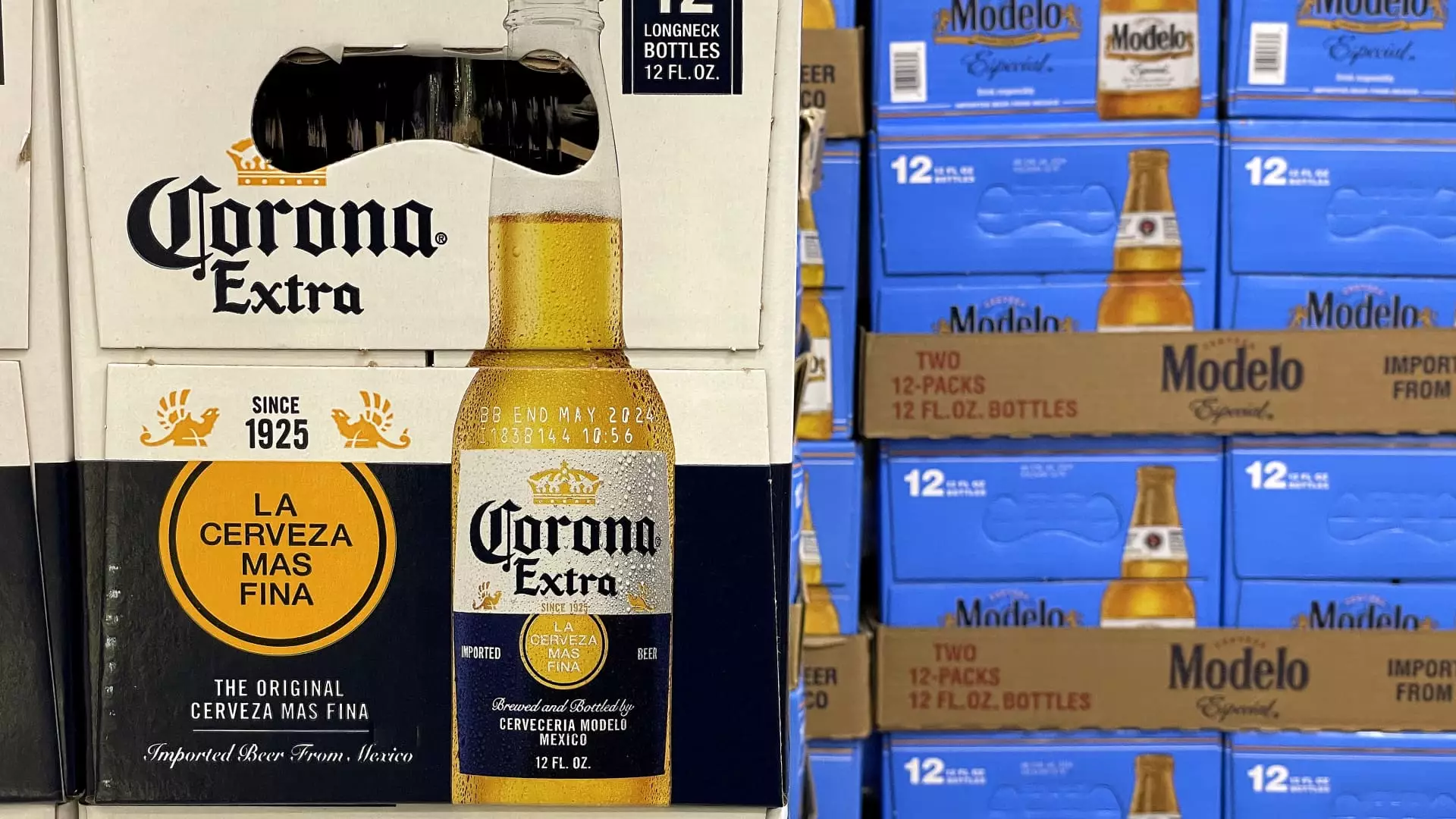Constellation Brands has recently found itself grappling with the ramifications of an underwhelming quarterly report, raising significant questions about the future viability of the company’s stock in investment portfolios. The beverage giant, known for its robust portfolio of beers, wines, and spirits, reported net sales that stagnated year-over-year at $2.46 billion, falling short of the anticipated $2.53 billion. This disappointing revelation, highlighted just before the market opened on Friday, has led to a deep introspection regarding the stock’s place in strategic investment choices.
Moreover, the company’s adjusted earnings per share (EPS) recorded at $3.25—a slight decline from last year—also missed analyst expectations of $3.31. This collective disappointment is hardly an encouraging sign, especially when stakeholders had hoped for a sustained upward trajectory amid an uncertain economic backdrop.
The Core Struggles: A Focus on Beer
Despite the better-than-expected performance of its beer segment, which includes popular Mexican brands such as Modelo and Corona, the broader context of the performance is revealing. The beer unit’s sales increased by a mere 3%, which, while positive, was below market expectations. Operating income in this sector only marginally improved, showcasing challenges in driving significant growth even in the more successful segments of the company.
As competitors like Anheuser-Busch InBev and Molson Coors continue to make headway, Constellation’s ability to stand out is becoming increasingly uncertain. Analysts and investors alike are now lobbying for the company to concentrate its efforts solely on its beer division, while divesting its underperforming wine and spirits units. This strategy is perceived as a necessary course of action to streamline operations and better align with current market trends.
The alcohol industry is currently navigating turbulent waters, and Constellation Brands appears to be caught in the tide. Emerging preferences among younger consumers for cannabis-based alternatives, combined with the influence of GLP-1 weight loss medications, appear to be siphoning away traditional market share from alcoholic beverages. As consumption patterns evolve, the company’s once-reliable beer franchises are now showing signs of strain, revealing that consumer habits may no longer support the growth once anticipated by shareholders.
Moreover, concerns surrounding inflation and shifts in political landscapes, such as impending trade tariffs and immigration policies, further exacerbate the situation. With consumer spending tightening, Constellation is facing a more difficult climate than it has previously encountered, which was evident in its stock trading down significantly—experiencing a single-session decline exceeding 16%.
Management’s guidance for the remainder of fiscal 2025 paints a stark picture of subdued expectations. The company revised its projections downwards, suggesting that overall net sales may only see a 2% to 5% increase—substantially less than the earlier forecast of 4% to 6% growth. Notably, the wine and spirits division was expected to decline, suggesting a structural issue beyond momentary market factors.
Adding to this volatility, the guidance for beer sales, while still positive, was also revised downward, illustrating that even the most promising segments of the business are becoming increasingly difficult to navigate. The company has now set its full-year adjusted EPS forecast between $13.40 to $13.80, which is notably restrained given prior estimates.
In light of these developments, it is evident that Constellation Brands is at a pivotal junction. Stakeholders now question whether the company can effectively pivot away from underperforming segments, particularly the wine and spirits division. While management has alluded to possible divestment strategies, a convincing execution remains to be seen.
Additionally, enhanced focus on launching innovative product lines within its beer category may be essential to counteract the current trends. As Constellation grapples with an uncertain market, the need for an agile response to evolving consumer preferences will be imperative.
In a conclusion that resonates with the current uncertainties surrounding Constellation Brands, it appears that if investors are not compelled to act in the face of a significant decline in stock performance, it may indicate that the time is ripe to reassess one’s position in this brewing crisis. With a diminished outlook and lackluster performance across key metrics, the future trajectory of Constellation Brands necessitates careful observation and potential reevaluation of its investment thesis.

